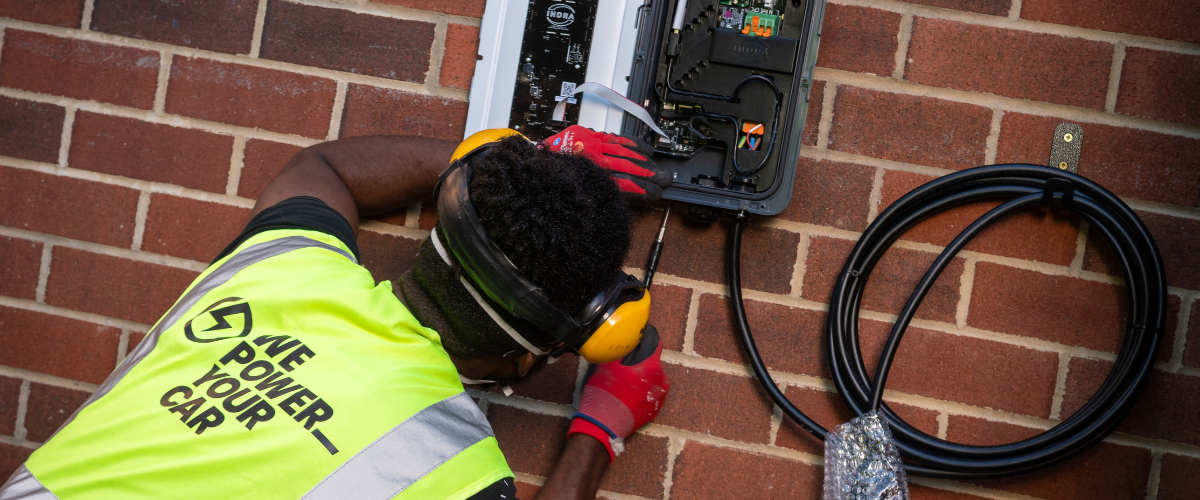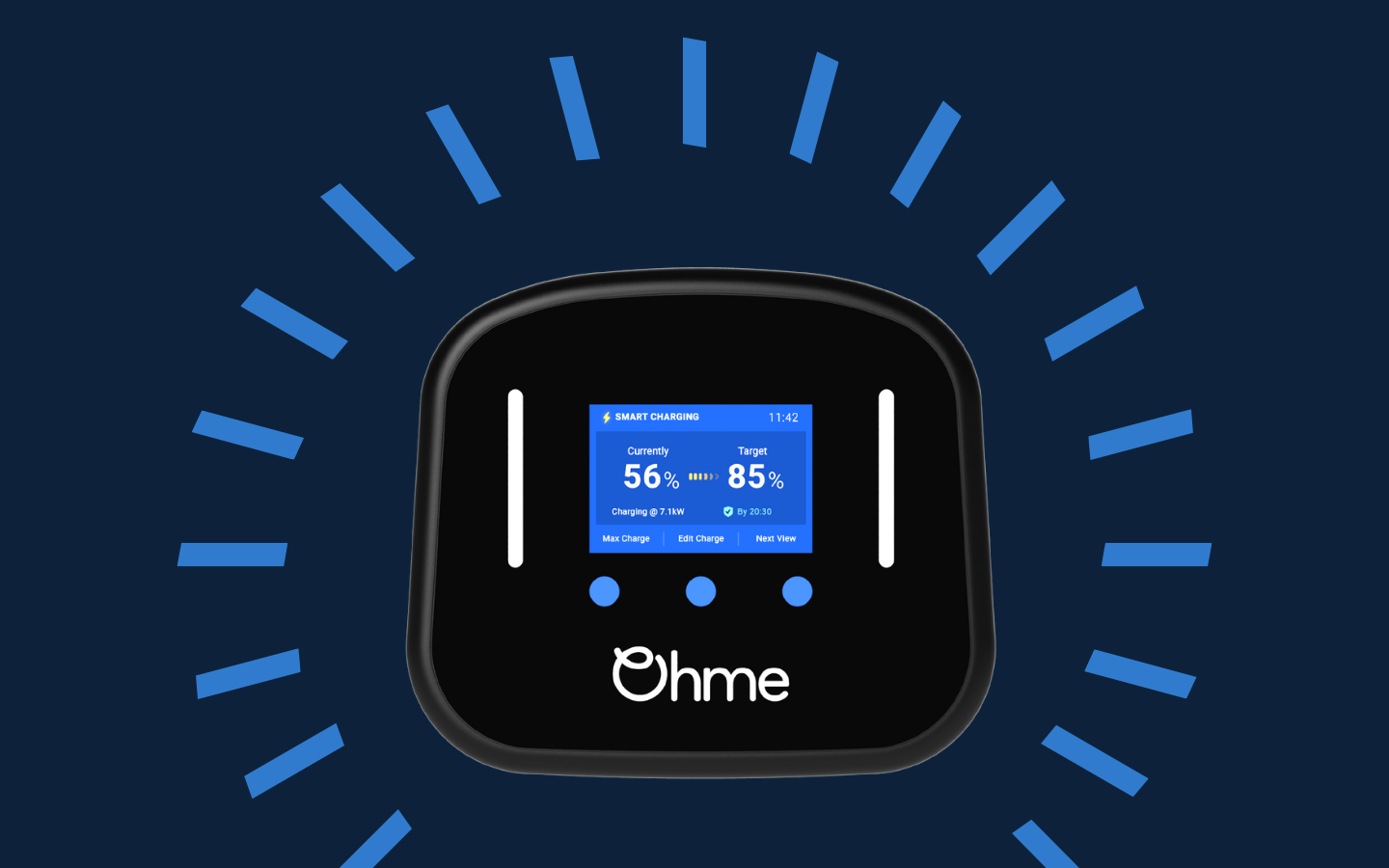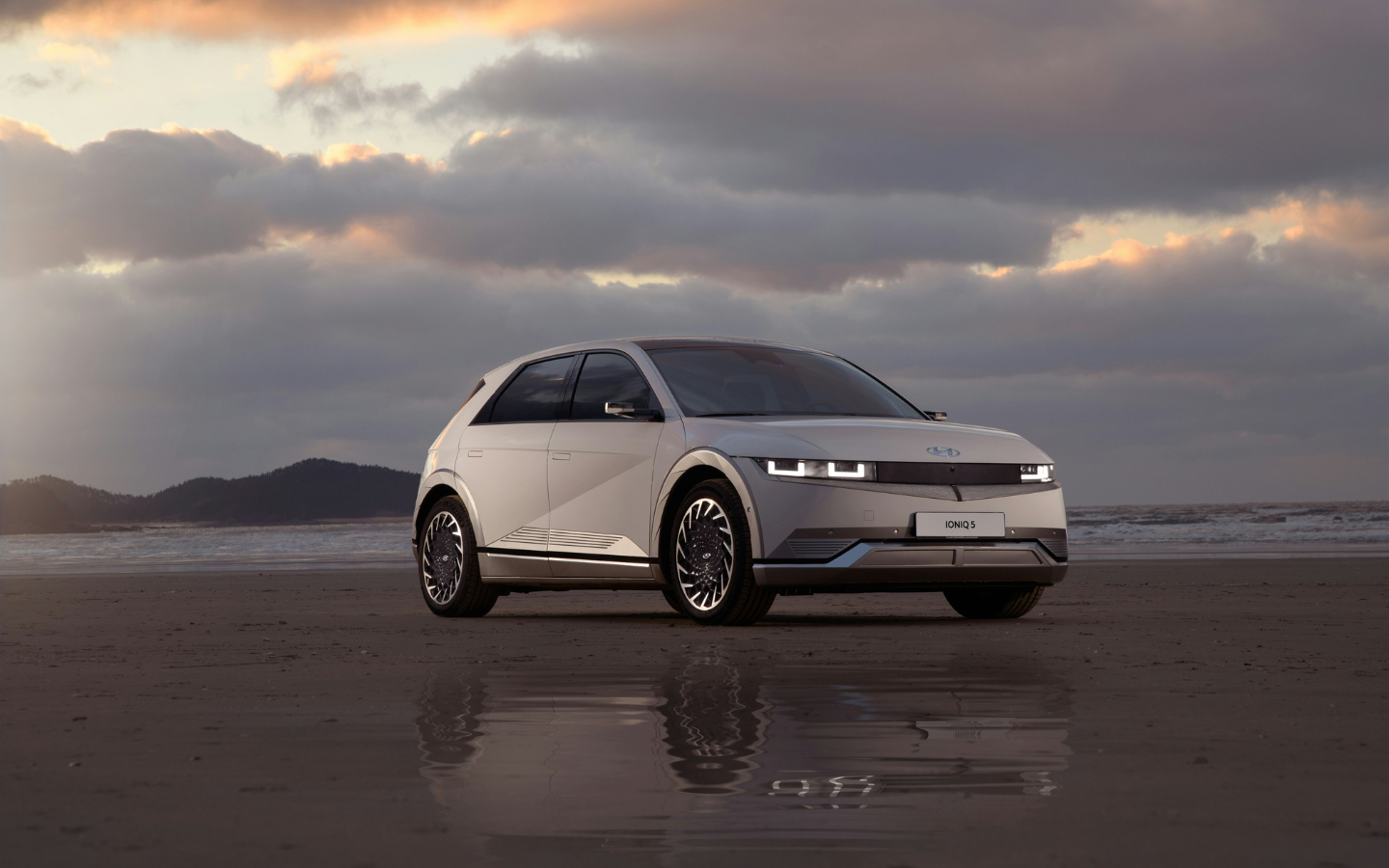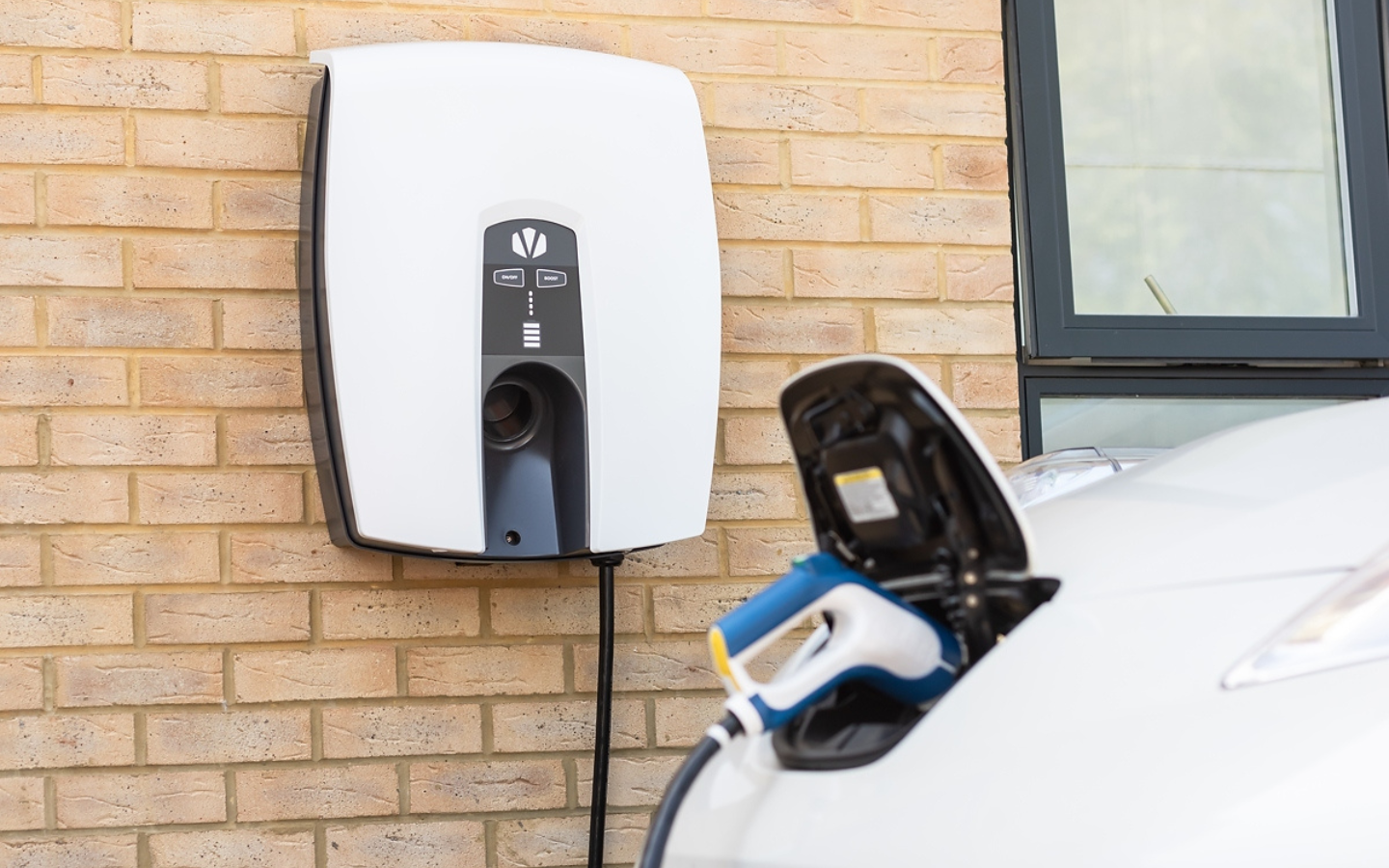

How do I charge my electric car at home?
With the rising popularity of electric vehicles, many owners seek convenient and cost-effective ways to charge their cars at home.
If you’re an EV owner or considering switching to electric, you may be wondering about the best methods to charge your car from the comfort of your home.
In this article, we explore the various options and requirements for home EV charging. From the types of chargers available to the essentials needed for installation, we’ve got you covered.
Can you charge an electric car at home?
One of the most common questions among prospective EV owners is whether it’s possible to charge an electric car at home. The answer? A resounding yes.
Truthfully, home charging is not only feasible but also the most convenient and cost-effective way to charge for most EV owners. However, having the proper infrastructure in place is essential to ensure safe and efficient charging.

What do I need to charge an electric car at home?
To successfully install a home car charging point, you need to consider the following:
- Off-street parking: Having off-street parking is essential, as you cannot trail an EV charging cable over a public footpath due to safety reasons. Moreover, if you don’t have off-street parking, you won’t be able to claim any government grant funding.
- Stable Wi-Fi or 4G connection: All home EV charge points now have to have smart functionality due to the Smart EV Charging Regulations. Smart EV chargers require a stable internet connection or mobile 3G/4G connection for remote monitoring and control.
- Landlord approval: If you’re a homeowner, you have the authority to modify your property. However, if you’re renting, you must seek permission from your landlord before a charger can be installed.
Learn more about EV charger installation regulations and requirements.
What types of EV chargers can I use to charge at home?
When it comes to charging your electric vehicle at home, different types of EV chargers are available. Let’s explore the options:
1. Three-pin plug charger
A three-pin plug EV charger is an electric vehicle (EV) charger designed to be plugged into a standard household electrical outlet.
Using a three-pin plug charger is the most basic way to charge, as it typically comes as standard with most electric vehicles, and you don’t need a specialist to install it.
But, while three-pin plug charging sounds convenient on the surface, it’s the slowest way to charge your electric car, taking upwards of 12 hours for a full charge.
On top of this, industry experts recommend that three-pin plug chargers only be used as a last resort or in emergencies. Why? Because continuous use of a 3-pin plug for EV charging can lead to overheating since the plug is not designed to handle the sustained power demand required for charging an electric vehicle. Overheating can potentially cause damage to the plug and the electrical socket or even result in a fire hazard.
Discover everything you need to know about three pin plug chargers.
2. 7kW smart home charger
A 7kW smart home charger is the most popular choice for home electric car charging. 7kW home EV charging offers a significant improvement in charging speed compared to a three-pin plug, taking between 4-8 hours to charge your EV – that’s approximately three times faster than three-pin plug charging!
Convenience is also key with a dedicated 7kW charger, as it’s ready whenever you are – forget long waits at costly public charging points.
Additionally, smart electric car chargers come with advanced features like charge scheduling options and real-time monitoring, which offer added benefits. Advanced home EV chargers can come with solar charging capabilities or tariff integration, too, offering you greener and cheaper charging.
3. 22kW smart home charger
A 22kW smart home charger provides even faster charging speeds but requires a 3-phase electrical supply. It’s worth noting that not all homes have a 3-phase supply, and upgrading to one can be expensive. With this in mind, installing a 22kW charger may not be feasible or cost-effective for everyone.
Read our blog to discover more about the differences between a 7kW and 22kW EV charger.
Why should you charge your electric vehicle at home?
Charging your electric vehicle (EV) at home offers several benefits, especially when using a 7kW or 22kW smart home charger. Here are just a view:
- Cost savings: Charging your EV at home using a smart charger is often cheaper than using public chargers. You have more control over your charge, allowing you to take advantage of lower electricity rates, off-peak pricing, or potentially even renewable energy sources. This can result in significant cost savings over time.
- Convenience: Having a dedicated EV charger at home provides convenience and flexibility. You can charge your vehicle whenever it’s convenient, whether overnight or during off-peak hours. You won’t have to rely on finding available public charging stations or dealing with potential wait times.
- Increased property value: Installing a 7kW or 22kW smart EV charger at your home can increase the value of your property. With the growing popularity of electric vehicles, prospective buyers or renters may view having home fast charging capabilities as an attractive feature, potentially increasing your property’s market appeal and value.
What’s the difference between tethered and untethered EV home chargers?
When it comes to charging your electric vehicle at home, you may come across the terms “tethered” and “untethered.” Tethered chargers have a built-in charging cable permanently attached to the charging unit, while untethered chargers require you to use your own cable.
Tethered chargers offer convenience, with the cable always ready for use, while untethered chargers provide flexibility as you can use different cables.
Learn more about the difference between tethered and untethered chargers.

What is the cost of installing an electric car charger at home?
The cost of installing an electric car charger at home varies based on several factors. Here’s a brief breakdown of what can affect the overall cost:
- Charging unit and installation cost: The typical charger & installation cost of a smart 7kW EV charger on our website ranges from £649 to £1199. Choosing a reliable and efficient charger that fits your needs and budget is important.
- Electrical upgrades: Upgrading your home’s electrical infrastructure to support the charger’s power demands may be necessary, adding to the cost. For example, you may need an upgrade to your incoming fuse to support the increased demand from your new EV charger. To learn more about the potential upgrades that may be necessary before your installation can proceed, delve into our guide.
- Installation complexity: Factors such as the distance between the electric meter and charger location, trenching requirements, and any additional cabling can impact installation costs.
- Government grants and incentives: Depending on your location, government grants and incentives may be available to reduce the cost of installing a home EV charger. In the UK, various grants are available such as those for landlords, renters, and people with a registered business at their home address. These grants enable savings of up to 75% towards the cost of installing electric vehicle smart charge points, up to £350. Learn more about the various government grants available for EV chargers.
Consulting with a professional EV charger installation company such as We Power Your Car will provide an accurate and fixed quote based on your specific requirements and consider any grants you may be eligible for.
When is the best time to charge my electric car at home?
Determining the optimal time to charge your electric vehicle at home can help maximise convenience, cost savings, and efficiency. Consider the following factors to identify the best time for charging:
- Off-peak electricity rates: Many companies offer different electricity rates based on the time of day. Take advantage of off-peak hours when electricity demand is lower, typically during late evenings, nights, and early mornings. Charging during these times can result in lower electricity costs.
- Smart charging capabilities: If your EV charger has smart charging features, take advantage of them. These features allow you to schedule charging sessions and prioritise charging during specific times, such as off-peak hours. Some chargers, such as Ohme Home Pro, can integrate and sync with your electricity tariff so that you can charge at the cheapest times available to you.
- Personal schedule and flexibility: Align your charging routine with your daily schedule. If your EV is parked at home for an extended period, such as overnight, charging during this time ensures your vehicle is ready for use the next day without impacting your routine.
- Battery management: Consider the charging needs of your EV’s battery. Lithium-ion batteries, commonly used in EVs, do not require a full charge every time. Charging your EV when the battery level is between 20% and 80% can help prolong battery life and optimise charging efficiency.
By charging your electric vehicle strategically at home, you can minimise costs, take advantage of favourable electricity rates, and optimise your EV’s battery performance. Embrace the flexibility and control that home charging offers to maximise your electric driving experience.
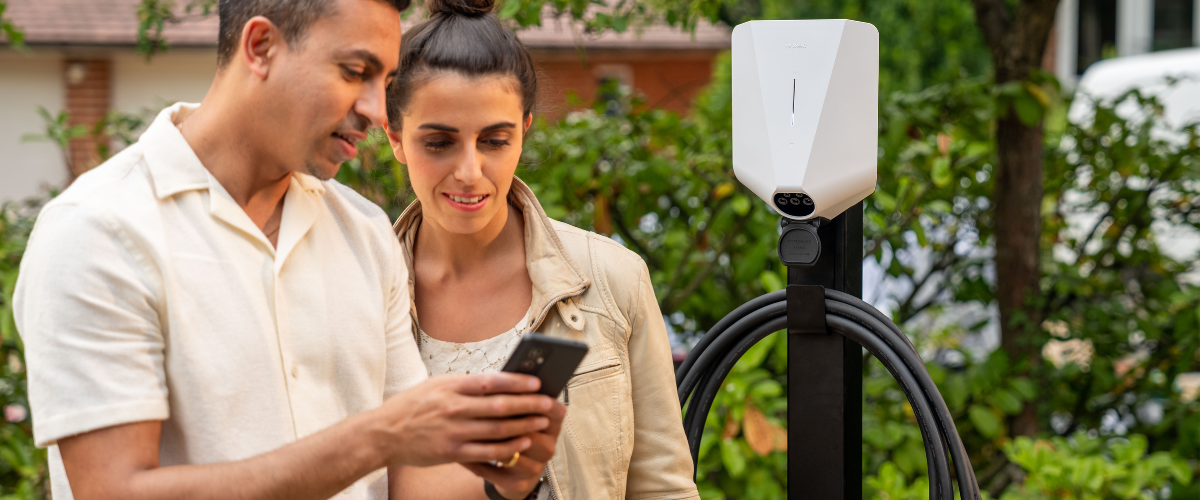
Can I charge at home without a car charging point?
As mentioned previously, in some cases, you can use a standard household socket, also known as a three-pin plug, to charge your EV.
A 2.3kW or 2.5kW 3-pin plug charger (also known as a granny charger) will likely come included with your electric car, so at first glance, it seems like the most logical way to charge at home.
However, as previously mentioned, using a 3-pin plug charger is the slowest and least efficient option. It is recommended for emergency use only and not everyday charging due to much longer charging times and potential safety risks.
In our professional opinion, while charging your EV at home without a dedicated charger is possible, investing in a 7kW or 22kW smart home EV charger provides a more reliable, safe, convenient, and, when combined with smart charging features, typically cheaper charging experience.
Summary:
- Off-street parking, stable Wi-Fi or 4G connection, and landlord permission/homeownership are essential for home charging.
- Different types of EV chargers are available: three-pin plug charger, 7kW smart home charger, and 22kW smart home charger (3-phase supply required).
- Charging at home offers cost savings and convenience and can increase property value.
- Tethered chargers have built-in cables, while untethered chargers require using your own cable.
- The cost of installing an EV charger at home varies based on factors like the charging unit, electrical upgrades, installation complexity, and government grant funding.
- The best time to charge at home is during off-peak hours to take advantage of lower electricity rates. Installing a smart home EV charger allows you to schedule charging sessions, prioritise charging during specific times and integrate with your energy tariff to charge at the cheapest times.
- Charging without a dedicated smart home EV charger is possible with a standard household socket and a three-pin plug charger, but it’s slower, less efficient, and unsafe.
- Investing in a dedicated smart home EV charger provides a reliable, safe, convenient, and efficient charging experience.
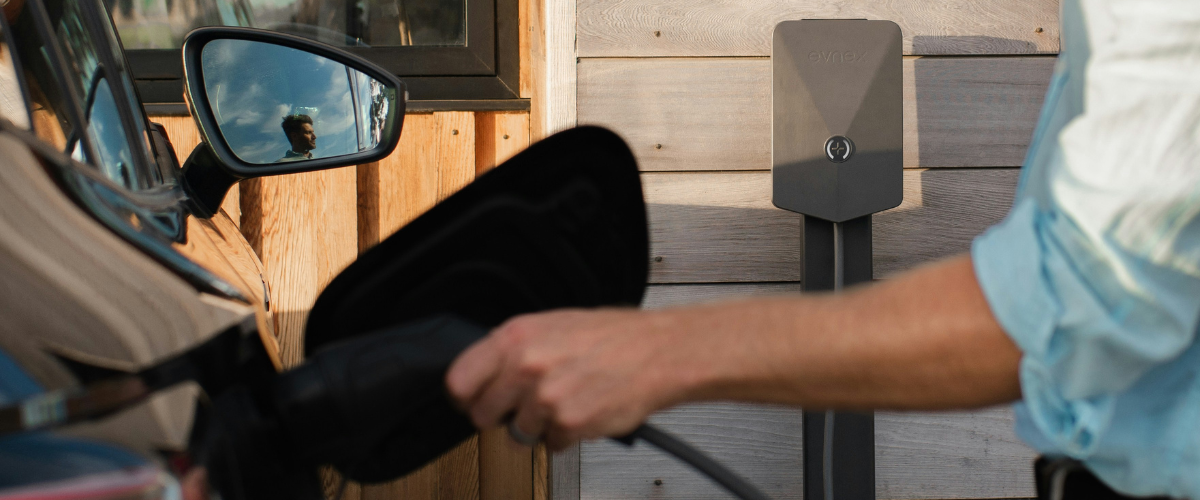
How can I get a dedicated home charge point installed?
The best way to get a dedicated smart home charge point installed is to contact an approved and fully certified EV charger installer, such as We Power Your Car. We ensure a hassle-free process from initial enquiry to the installation itself, and with engineers across the UK, we can install home EV chargers wherever you are.
If you are looking to get an EV charger installed at your home, browse our range of the best electric car chargers, click below to get your free quote, or contact us for more information or any queries you may have.
For more information and our latest updates, follow us on Facebook, Instagram, Twitter, LinkedIn and YouTube.
